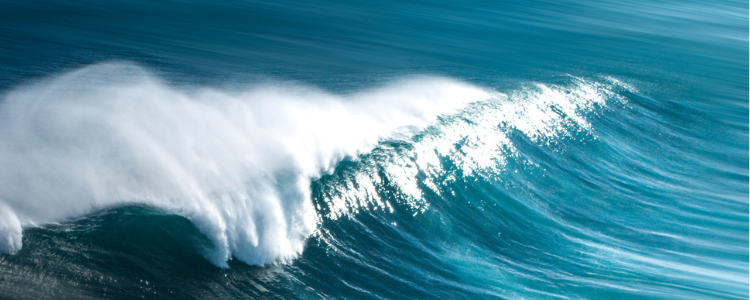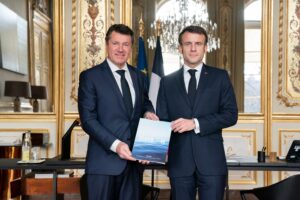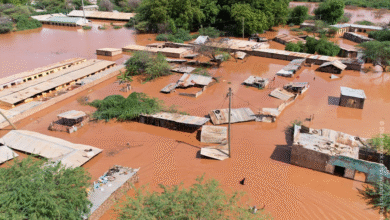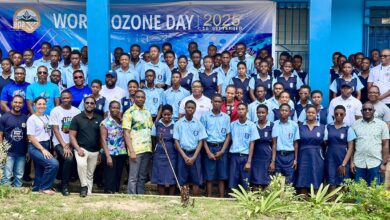World Leaders Rally in France to Save Oceans as UN Confab Calls for Bold Action

The 2025 United Nations Ocean Conference has opened in Nice, France with a resounding call for bold, collective action to halt the degradation of the world’s oceans and to chart a sustainable future for marine ecosystems and coastal communities.
Co-hosted by the Governments of France and Costa Rica, the five-day summit is bringing together heads of state, scientists, private sector leaders, civil society, Indigenous Peoples and local communities — all with one message: the time to act is now.
“We live in an age of turmoil, but the resolve I see here gives me hope — hope that we can turn the tide,” UN Secretary-General António Guterres said in his opening remarks, urging countries to submit “bold pledges” for ocean protection.

French President Emmanuel Macron echoed the urgency, stating that revitalizing multilateralism under the UN framework is crucial to confronting escalating threats to marine life. “The only way to meet that challenge is to mobilize all actors, heads of state, governments, and scientists,” Macron said.
Costa Rican President Rodrigo Chaves Robles added that protecting the ocean is no longer an option, but a “moral and economic imperative.”
The conference comes amid alarming scientific evidence of mounting pressure on marine ecosystems due to climate change, pollution, overfishing, and biodiversity loss. Record ocean temperatures are threatening marine life, while unchecked plastic waste and illegal fishing continue to push fragile ecosystems toward collapse.
Key outcomes of the conference are expected to include the adoption of the Nice Ocean Action Plan , an inter-governmentally negotiated political declaration, alongside UN a registry of voluntary commitments from governments and other actors.
Billions Needed, Not Millions
“The time for incremental progress is over. We need billions, not millions, in investment,” said UN Under-Secretary-General Li Junhua, calling for binding commitments that can withstand political and economic shifts.
Discussions at the conference are centered around key global targets, including:
-
Ratifying the Marine Biodiversity Treaty (BBNJ Agreement) to ensure the conservation of areas beyond national jurisdictions, nearly two-thirds of the ocean.
-
Sustainable fisheries, with a focus on ending illegal, unreported, and unregulated fishing, and rebuilding fish stocks.
-
Marine protected areas, with progress toward protecting 30% of the ocean by 2030 under the Kunming-Montreal Global Biodiversity Framework.
-
Decarbonizing maritime transport through the adoption of zero-emission fuels and green port infrastructure.
-
Combatting plastic pollution, as negotiations for a global plastics treaty resume in August.
-
Unlocking finance for sustainable blue economies through blended finance and public-private partnerships.
-
Promoting science-based governance and integrating Indigenous knowledge into ocean management.
The conference will also feature a special treaty event to encourage countries to sign and ratify the BBNJ Agreement , a landmark legal tool to safeguard marine biodiversity beyond national jurisdictions.
As pressure mounts to deliver on Sustainable Development Goal 14 , to conserve and sustainably use the oceans, the leaders in Nice are seeking to galvanize political will and secure lasting commitments to ensure that today’s actions protect the oceans for generations to come.




